by Red Cross LA Region Volunteer Carmela Burke
As we were leaving the Los Angeles Homeless Services Authority, a supervisor said “You’re going to be like detectives.”
Indeed, as caseworkers for the Restoring Family Links (RFL) program of American Red Cross International Services, we pounded the pavement like detectives on behalf of someone in Cuba who wanted to send a message to his sibling in Los Angeles.
The process
RFL staff at International Services Headquarters in Washington DC sent a Red Cross Message to caseworkers in the Los Angeles Region. Initial information given from someone at the last known address indicated that the sought person was dealing with health/mental health issues, and could be homeless and living in a shelter downtown.
During the RFL workgroup session at the Los Angeles Region HQ office, caseworkers continued the search by starting a phone-tree call-down of homeless shelters, mental health clinics, post offices and hospitals within the County. The worksheet of as many as 20 agencies consisted of address, contact information, website, and notes. Among those initially telephoned were: Downtown Mental Health Center, Kaiser Permanente, Telecare, Didi Hirsch Metro Center, and Catholic Charities. Many of the agencies did not have the name of the person we were looking for in their database while some declined to provide information based on confidentiality issues.
One agency confirmed that the person stayed at their facility until August 2014 after which they lost contact with the person. This case required RFL Caseworkers to travel to downtown Los Angeles and follow up on contact conversations and distribute RFL information. On May 14, volunteer caseworkers Doug Wiitta and Carmela Burke mapped their route to accomplish the task.
First stop: Catholic Charities Brownson House, one of the community centers of Catholic Charities serving low-income and homeless individuals. While the database name search yielded no results, staff agreed to post information about our search.
Next Stop: Los Angeles Homeless Services Authority (LAHSA) in the mid-Wilshire district. LAHSA is a city-county agency empowered to address homelessness in the city and county of Los Angeles. Upon reaching the outreach department, we described the RFL program and our query. We were told that the person we were looking for is not in their directory of homeless individuals. In addition to the homeless shelters on downtown’s Skid Row, LAHSA suggested we contact the police department and county morgue.
Final stop: Los Angeles Skid Row, a 4-mile-54-block neighborhood in downtown Los Angeles. Several social service agencies are based in the area including the Weingart Center, Union Rescue Mission, Midnight Mission, and the Los Angeles Mission. In a July 2014 article in the Los Angeles Times, “local officials said in 2013 that 54,000 people in Los Angeles city and county were homeless, an increase of 15% from two years earlier.”
On foot, we visited all the aforementioned Skid Row shelters. All but one agency agreed to scan their database as well as share information about RFL and our search. A shelter employee pointed out that the Los Angeles Mission might be a good place to go because of that shelter’s strong connection to the Cuban community. We met with a supervisor who checked their records. Search result revealed someone with the same last name but different first name. The supervisor then used the intercom to page one of the shelter workers who he thinks might be a good lead.
Speaking in Spanish, the supervisor relayed our query. Our eyes lit up when the employee nodded “Si” and that he knows the person we needed to locate. To verify, we asked the age of his friend. His approximation matched our information, and the employee also knew of family in Cuba. In addition, the employee also said our sought person has run into some trouble with law enforcement.
Next steps: The journey to Skid Row proved productive in moving the case forward. At the Los Angeles Region HQ, our casework supervisor examined a State of California databank of individuals incarcerated in state prisons and county jails. While there were several with the same name, none matched the other details related to our sought person. However, our caseworkers learned that after an arrest, there are many instances during pre-trial and post-trial wherein a person who is mentally ill may be diverted from the corrections system to a mental facility.
Caseworker Wiitta: “It is very difficult to locate a homeless person in Los Angeles. We intend to follow up with the District Attorney, Public Defender, and the Courts to continue to pursue other avenues of inquiry. We have requested from National Headquarters a 30-day extension of the due date so that we can indeed connect one family member to another.”
This is one of two inquiries RFL caseworkers at the Los Angeles Region are working on now. They have also submitted 6 new cases to International Services at the American Red Cross headquarters in Washington DC. For more information on Restoring Family Links, and the International Services Program, visit http://www.redcross.org/what-we-do/international-services.
(photo: Carmela Burke, Doug Wiitta and Kerry Khan plan a course of action to trace a client.)

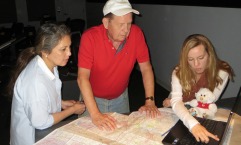
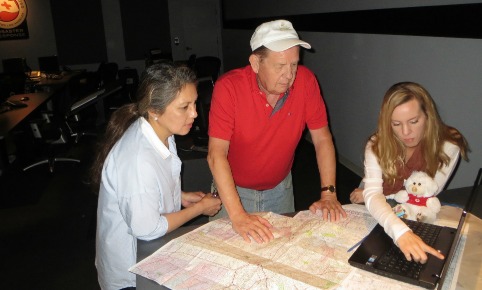
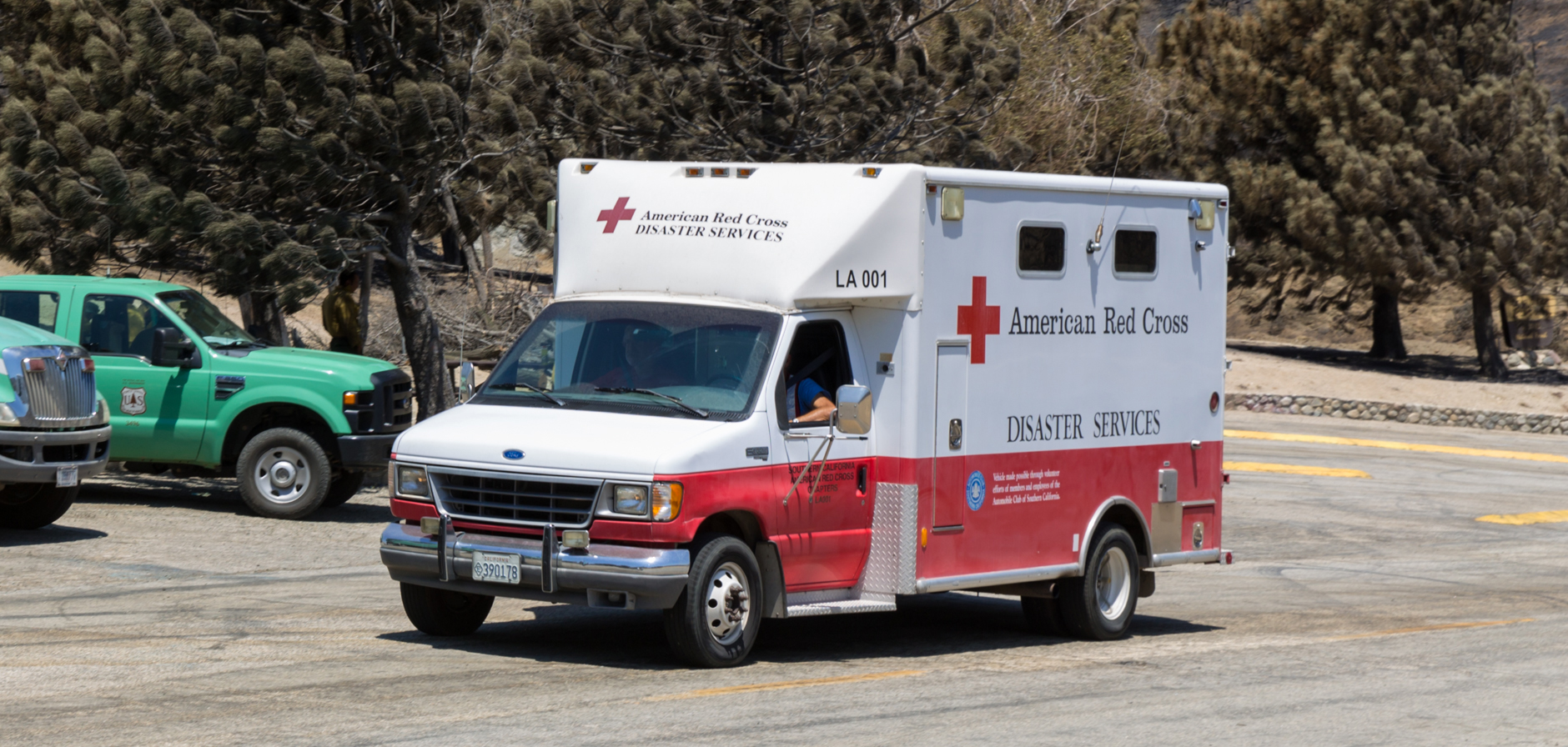

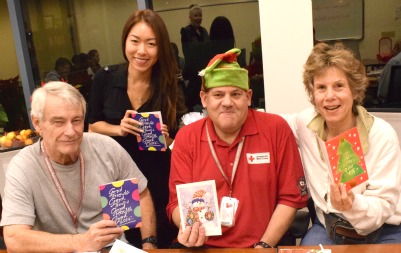
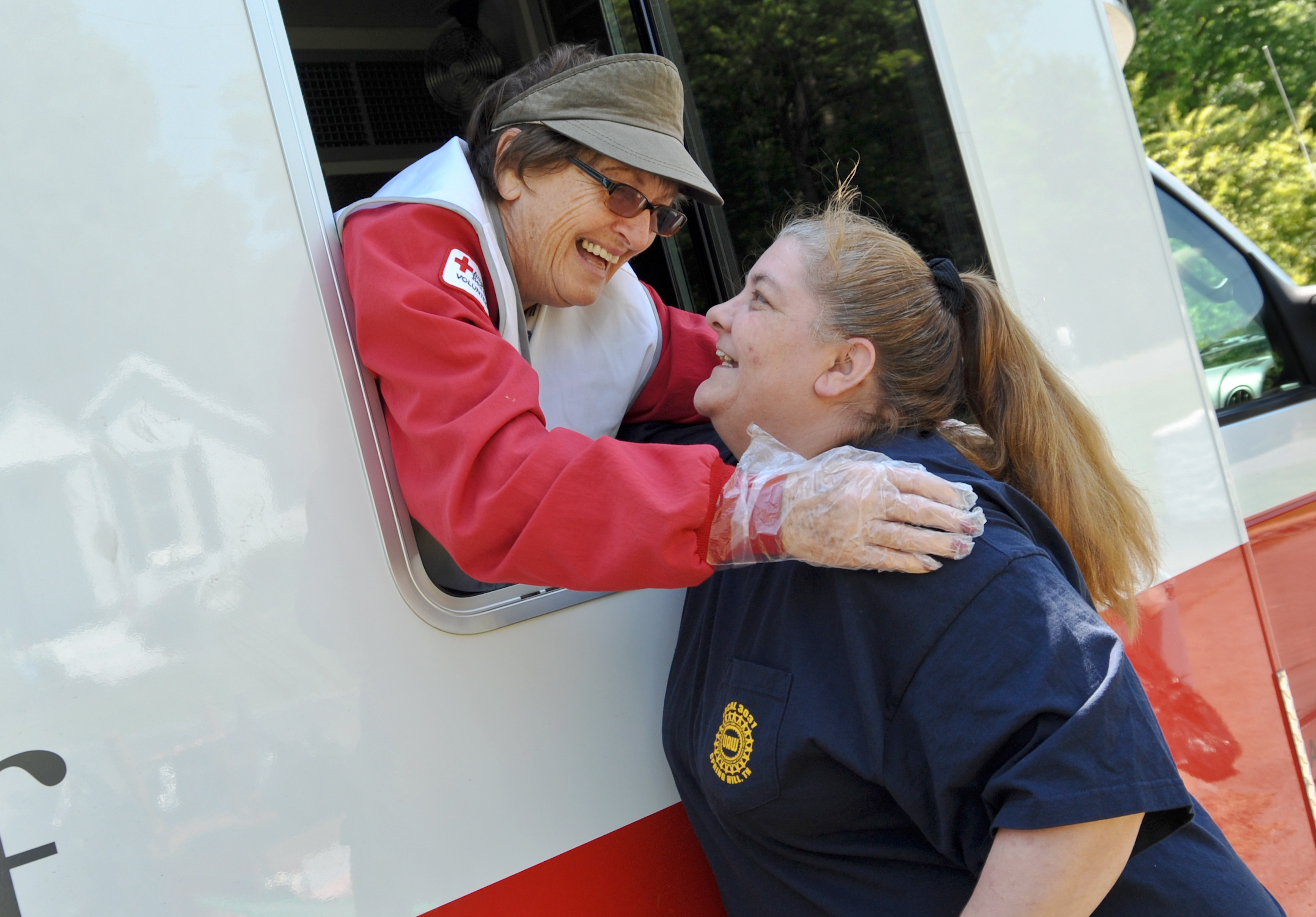
Perhaps these folks can help
http://www.mhala.org/services.htm
Best of luck